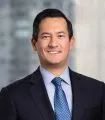Here in Miami, we attended a lively discussion yesterday from top regulators and enforcers at the SEC, CFTC, and DOJ. A panel moderated by Robert Khuzami featured SEC Enforcement Director Gurbir Grewal, CFTC Acting Enforcement Director Vincent McGonagle, DOJ Acting Assistant Attorney General Brian Boynton, and DOJ Principal Assistant Attorney General Nicholas McQuaid.
Each of the enforcers provided an overview of their top enforcement priorities:
- SEC Enforcement Director Grewal cited a "decades long decline" in confidence in our institutions and the need to combat the perception that "two sets of rules" exist—one for the powerful and connected and one for everyone else. To that end, the SEC plans to pursue an aggressive enforcement agenda focusing first on "gatekeeper accountability." Accountants, auditors, attorneys, and underwriters are now on notice: the SEC considers them the "first line of defense" against all manner of misconduct. Grewal also described crypto, ESG, and SPACs as "emerging threats" warranting enforcement attention.
- Acting CFTC Enforcement Director McGonagle, beyond pointing to "commonalities" with the SEC's enforcement priorities, specifically noted digital assets, FOREX, and disruptive trading practices. He reflected that the CFTC will focus on the economic realities of a particular business or product (as opposed to what the business calls its product).
- The DOJ representatives cited overlap with the SEC's and CFTC's priorities. (In a separate panel on securities enforcement, the chief of SDNY's Securities and Commodities Fraud Task Force, Andrea Griswold, identified public accounting fraud, insider trading, market manipulation, and SPACs as enforcement priorities.) The DOJ representatives on the Regulators and Enforcers panel also pointed to healthcare fraud, elder fraud, and anti-corruption as noted priorities.
In response to a question, this panel discussed the need to avoid "piling on," i.e., requiring a settling company to pay penalties to numerous regulators for the same misconduct. According to the panelists, nearly every settlement reflects their agencies' policies aimed at avoiding piling on. SEC Enforcement Director Grewal did observe, however, that it can be challenging to bring state regulators into the fold.
The panelists were pressed on the decades-old debate about the true benefits of cooperation. All panelists addressed the need to self-report as critical: purportedly "voluntary" reports that actually come on the heels of "involuntary" exposure (such as news reports) would be viewed skeptically, they said. Principal Assistant Attorney General McQuaid cited the need for companies to avoid "gamesmanship"—a reference to forum shopping—in determining where to self-report misconduct. The panelists responded to criticism of the government for converting private law firms into government actors by outsourcing their investigative efforts, an issue we've discussed previously.
In response to questions regarding the use of monitors, the DOJ representatives cautioned that monitors remain an important tool in resolving cases and that we should not read too much into what appears to be a recent trend away from monitorships. Of course, today Deputy Attorney General Lisa Monaco announced new guidance favoring the Department's use of corporate monitors. We can expect corporate monitors are here to stay.
The panelists closed with some advice for practitioners. "Candor" was the word of the day. All panelists implored defense counsel to candidly confront facts and law unfavorable to their clients and avoid focusing excessively on litigation risk. SEC Enforcement Director Grewal stated in particular that he would not tolerate attacks on the SEC's staff during the Wells process.
The content of this article is intended to provide a general guide to the subject matter. Specialist advice should be sought about your specific circumstances.

